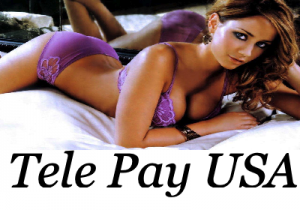 Top Class Action Lawsuits
Top Class Action Lawsuits
Is Minimum Wage Enough? Likely not, but it would be a good start. This week, an unpaid wages and overtime class action lawsuit was filed against Tele Pay USA by a phone sex worker who alleges the company is paying her less than minimum wage, no overtime and not paying for “off- the-clock” work, in violation of the Fair Labor Standards Act (FLSA). How low is the bar?
Filed in California federal court, by lead plaintiff Anne Cannon, the complaint alleges that Cannon and other workers similarly situated are making $6 per hour, but if their average call times drop below six minutes, their hourly rate also drops, to $4.20 per hour. According the lawsuit, Tele Pay is making $5 per minute.
“Plaintiff’s average hourly rate is below $6.00,” the lawsuit states. “The minimum wage in the state of Florida, the state in which she works, is $8.10 per hour. Anywhere in the nation, the average amount received by Ms. Cannon is far below the allowed national and state minimum wage.”
Tele Pay describes itself as a “booking agent” negotiating engagements on behalf of “actors” who are looking to provide “entertainment services.” However, according to the complaint, this is not the reality. Cannon, an employee of Tele Pay, was hired to field calls and keep callers on the line through sexually explicit talk for a fee that goes directly from the caller to Tele Pay, according to the lawsuit.
“She is required by Tele Pay to stay in her home within reach of her personal computer and land-line telephone for certain periods of time so that she is available to field calls from Tele Pay’s customers,” the lawsuit claims.
Get this, according to the Tele Pay lawsuit, if Cannon can’t keep her call times up, she is paid less. A person who goes by the name “Don” regularly gives pointers to Tele Pay phone sex workers on how to keep their average call times up. “Remember, it’s not how many calls you take, but how long you keep these guys on the phone!” Don allegedly tells the plaintiffs.
However, Cannon states in the complaint that often its beyond her ability to keep the callers on the phone: Prank calls, dropped calls or calls plagued by technical errors still count toward her average call times, even if they last only seconds, the lawsuit claims.
Further, Cannon alleges it is impossible for her to know that she’s being fairly compensated, as she doesn’t see the hours she’s logged or the average call time until the next day, and even that is an “estimate.” Her actual call times are allegedly calculated every Sunday.
She has often been asked to work in excess of 40 hours a week, without being compensated for overtime, the complaint states.
The proposed class action seeks to represent all Tele Pay phone-sex workers with similar wage claims dating back three years from the date of filing. Cannon is seeking an undetermined amount of back wages to make up for the alleged violations, post-judgment interest, and coverage of attorneys’ fees.
Well…work is work.
The case is Cannon et al. v. Tele Pay USA, case number 2:17-cv-04740, in the U.S. District Court for the Central District of California.
Top Settlements
It’s a Record Breaker! A $115 million settlement has been reached in the Anthem data breach class action lawsuit. The case was brought by 80 million consumers who had their personal data compromised in the massive 2015 data breach.
The Anthem data breach settlement is the largest on record for a data breach class action lawsuit. Under the terms of the deal, the funds will be used to provide credit protection and reimbursement for damages. Specifically, the settlement fund will provide two years of credit monitoring, pay for customers’ out-of-pocket expenses stemming from the data breach, and provide cash compensation to customers who’ve already purchased their own credit monitoring, according to the Associated Press (AP).
If approved, Anthem must also guarantee a certain amount of funding for information security and to make certain changes to its data security systems.
The health insurance company announced in February 2015 that it had been victim of a cyber attack, potentially exposing personal information of up to 80 million people. According to a statement from Anthem, customer names, birthdays, Social Security numbers, street addresses and employment information were accessed by the hackers. When Anthem announced the breach, however, it noted that financial information did not appear to have been accessed.
According to the lawsuit, Anthem, more than two dozen Anthem affiliates and 14 “non-Anthem” Blue Cross entities violated state and federal consumer protection laws by failing to protect the personal data that was stolen in a 2015 hack.
The case is In re Anthem Inc. Data Breach Litigation, case number 5:15-md-02617, in the U.S. District Court for the Northern District of California.
Counting Errors Getting Corrected? It’s not a done deal—yet—but hey, the penny has dropped. A proposed $9 million settlement has been reached potentially ending a consumer fraud class action lawsuit pending against TD Bank over allegations the bank’s count counting machines short-changed consumers.
If approved, the TD Bank settlement would provide $7.5 million in compensation for customers who were potentially shortchanged when using the machines in Penny Arcade machines from April 11, 2010, until they became unavailable in using the machines.
An investigative report in 2016, on NBC’s Today Show, revealed incorrect results when $300 in coins was placed in five randomly selected machines. That report was part of the disclosure used in the lawsuit.
TD Bank stopped using the machines in the wake of the NBC report and pulled them from its branches in May 2016.
Under the proposed terms of the settlement, people who were TD Bank customers at the time of Penny Arcade transactions “need not take any action to receive their distributions.” Penny Arcade users who remain TD customers will receive automatic payments into their accounts. Former customers and people who make written claims would receive checks in the mail.
Reportedly, TD Bank would calculate the amount each TD Bank customer would receive by using its records to determine the amount of Penny Arcade usage by those consumers. TD would multiply that sum by 0.26 percent to determine a customer’s distribution, or payment.
If approved, plaintiffs who used coin-machine but who did not have TD accounts, could submit written claims, subject to the approval of a settlement administrator. Claims unsupported by documentation would be limited to reimbursement of $500.
There are 13 named as plaintiffs in the consolidated class action lawsuit who would share a $50,000 payment. Any funds remaining after the payment of all claims and expenses would be shared among class members.
The proposed deal awaits court approval.
Ok – That’s a wrap for this week. See you at the bar!

 Top Class Action Lawsuits
Top Class Action Lawsuits  Top Class Action Lawsuits
Top Class Action Lawsuits Top Class Action Lawsuits
Top Class Action Lawsuits  Top Class Action Lawsuits
Top Class Action Lawsuits